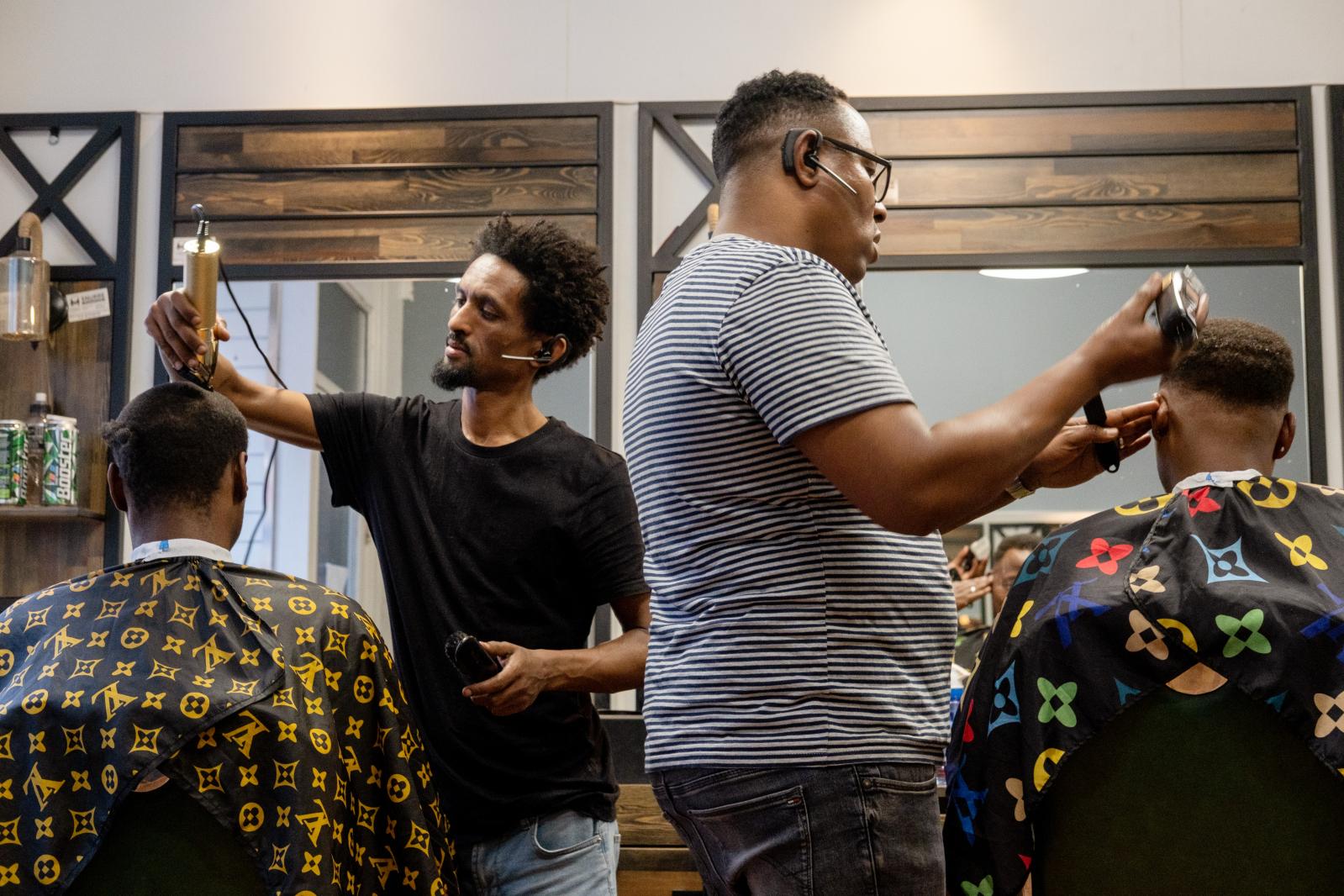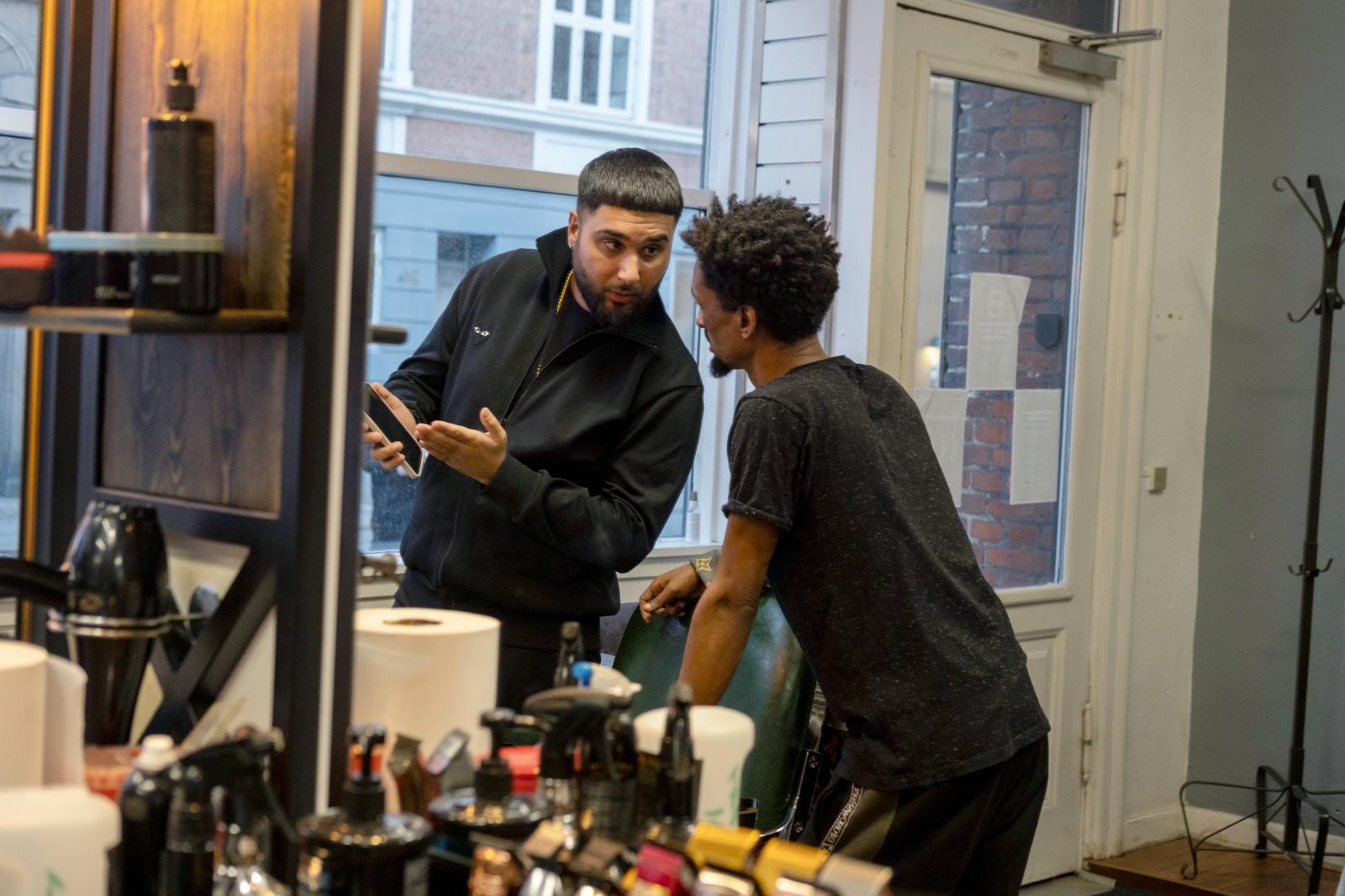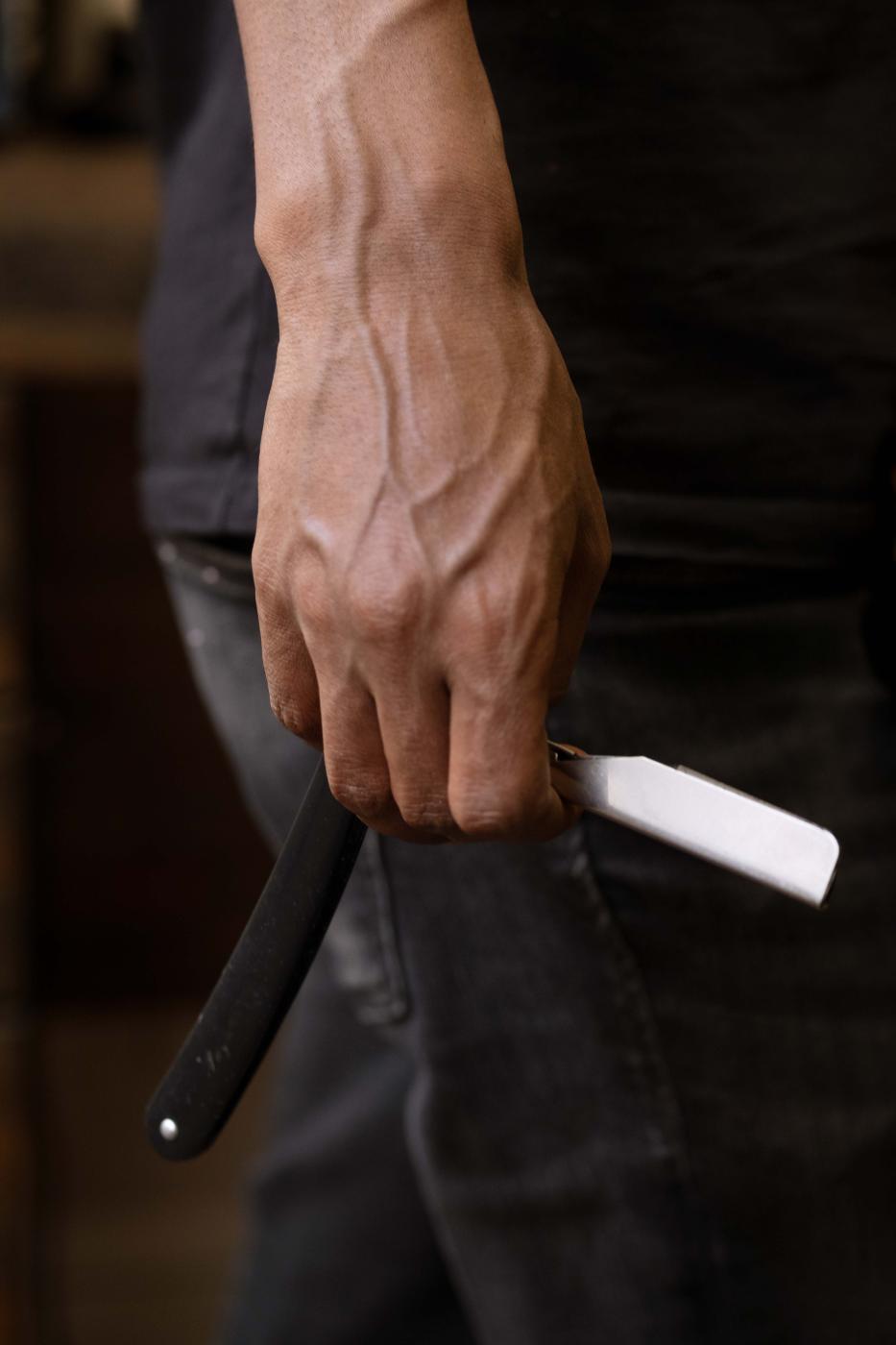“Sometimes I cut myself at home but if I have something special, I come to Tyson. I don’t get the same feeling in other barbershops. It’s like coming home.”
The barber station is littered with razors, clippers, brushes and combs of all sizes and shapes, tools that are in constant rotation. As Tyson welcomes Joseph, a Masai who is originally from Tanzania, to sit in the barber’s chair, Danny takes a barber cape to cover Dinan, a young man from DRC. In the shop, two huge mirrors hang across from each other as center pieces. The décor is minimal as if to say that the focus is not so much on the space but on the interactions that go on here.
T&T barbershop is on Vester Allé in the center of Aarhus. It is named after Tyson and his wife Terri. Tyson fled the civil war in his home country of Somalia at the age of 13 to neighboring Kenya. While doing odd jobs to survive he met Carlos, who owned a barbershop. Carlos took Tyson under his wings and taught him how to cut hair.
A skill that has proved very useful. After Tyson moved to Denmark, he struggled to find a job and he quickly decided to work with the skill he had learned and opened the T&T barbershop.
Cutting hair is not only a way to make a living for Tyson and Danny, his Eritrean assistant, but a way of making people happy. It is clear in the way he joyfully engages those who sit in his chair.
“If your mother dies, we will make you laugh, if you are sad, we will make you smile, if you are hungry, we feed you and we don’t charge for the comedy,” Tyson says.
On a sunny Wednesday a little past lunch time the barbershop is full. Two men are seated in the barber chairs, with three more on the couch waiting. One of them is Ahmed, a regular. He has already had a haircut, and now he is waiting for his friend Abdi while enjoying Tyson’s many stories. Tyson jokes about a customer who cheated on him with another barber. Tyson together with Danny is like having two big brothers, with them you never know what you will get, from the rib cracking jokes that keeps one entertained to the heartfelt conversations about life.
For Ahmed, Abdi, Joseph and the other men who frequent the shop it is not uncommon to be greeted with a warm smile, a fist bump, a hug or a simple ‘hello brother.’ For some, the relationship with the barbershop dates back many years and is still growing. As Delan, one of the barbershop’s oldest customers, dusts off hair from his neck and moves to the sink to wash the rest of the hair off, he jokes as he remembers his time as a young high schooler in the barbershop when he didn’t have a beard. Now, he is all grown up and owns a business.
Among the customers waiting to get a haircut are Hassan and his brother Mohamed, who have come all the way from Braband. They don’t only come in here for a haircut, they come for the stories and a good time. Tyson and Danny would usually speak as they cut hair, and the customers enjoy the stories. Not only the stories but some customers come as one would to a big brother for advice.
The phrase that resonates amongst many of the customers in telling why they keep coming back and why they refer their family and friends here is “they are the best.” It is almost certain that they are not speaking of the haircut alone but somehow finding words to describe how they feel, what it means to them having the barbershop as a constant feature in their lives.
What the shop means to the regulars is far more than the square meters it occupies.










